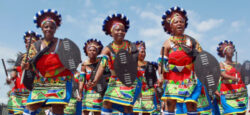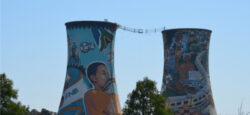Call us on: +27 12 748 3910
National Fraud Hotline: 0800 701 701 Email Address: fraud@nhc.org.za
Call us on: +27 12 748 3910
National Fraud Hotline: 0800 701 701 Email Address: fraud@nhc.org.za
The National Heritage Council of South Africa is a statutory body that
is responsible for the preservation, protection and promotion of the country’s heritage.

A nation proud of its African heritage.

To transform, protect and promote heritage through the coordination and management of heritage knowledge and resources for social cohesion and sustainable development.

The following values will guide the programmes, NHC and all those who are acting in its name: Ubuntu, Integrity, Professionalism, Equity and Creativity.
The National Heritage Council (NHC) complies with the Constitution of the Republic of South Africa, particularly Section 31 of the Constitution provides the right of cultural, religious or linguistic communities to enjoy their culture, practise their religion and use their language. The role of the NHC is to protect the diverse culture and heritage of all the people of South Africa, particularly the previously marginalised communities.


The NHC is a Schedule 3A public entity, and an agency of the Department of Sport, Arts and Culture.
The mandate of the NHC which is drawn from the White Paper on Arts and Culture is contained in Section 4 of the National Heritage Council Act no. 11 of 1999 as per the objects of the Act as stated below:
To develop, promote and protect the national heritage for present and future generations.
To coordinate heritage management.
To protect, preserve and promote the content and heritage which resides in orature in order to make it accessible and dynamic.
To integrate living heritage with functions and activities of the Council and all other heritage authorities and institutions at national, provincial and local levels.
To promote and protect indigenous knowledge systems including but not limited to enterprise and industry, social upliftment, institutional framework and liberatory processes: and
To intensify support for the promotion of history and culture of all our peoples and particularly to support research and publications on enslavement in South Africa.
Our understanding of heritage is that no single and universally acceptable definition of heritage has been proffered to date. Several attempts at defining heritage have been made in the past, one of which defines it as “that which is constructed in the present from remains of the past” (Ashworth and Turnbridge, 2001). The Oxford Dictionary defines it as “the sum total of wildlife and scenic parks, sites of scientific and historical importance, national monuments, historical buildings, works of art, literature and music, oral traditions and museum collections and their documentation which provides the basis for a shared culture and creativity.
Heritage as defined by Council, as informed by inputs solicited from the public is that “Heritage is what is preserved from the past as the living collective memory of a people not only to inform the present about the past but also to equip successive generations to fashion their future. It is what creates a sense of identity and assures rootedness and continuity, so that what is brought out by dynamism of culture is not changed for its own sake, but it is a result of people’s conscious choice to create a better life.”
Discussion document towards defining heritage: Download discussion document
The NHC’s focus
The NHC’s focus is on heritage knowledge. This is informed by the mandate and our experiences from our stakeholder interactions. Our approach towards heritage programming aims for the realisation of the NHC’s vision by ensuring the following: